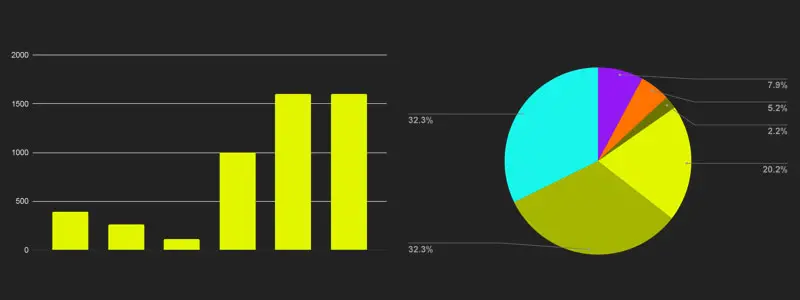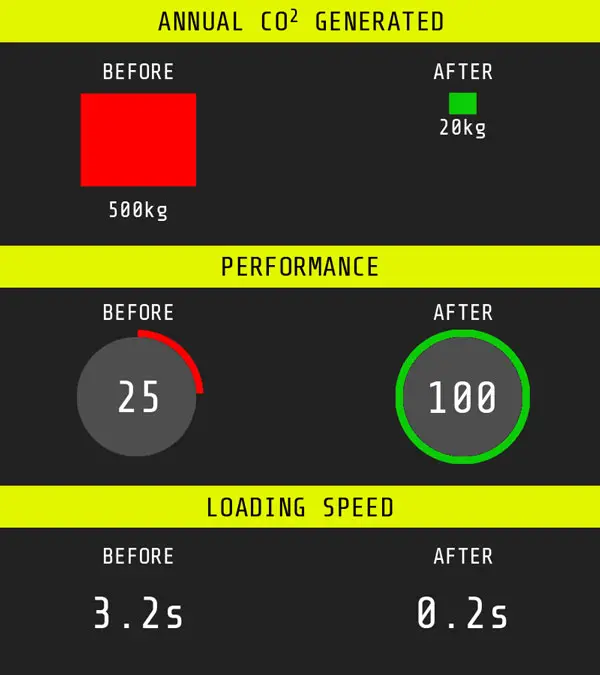Services///
Website Carbon Reduction Services
Everything we offer is designed to reduce digital emissions while improving speed, stability and commercial performance.
Start with an impact assessment. Leave with a clear plan and measurable results.
Book Free Impact AssessmentCore service///
Our core Website Carbon Reduction service
A results-driven process: Measure → Prioritise → Improve → Prove it.
We quantify your current impact, identify the biggest wins, implement improvements (with your team or ours), and report carbon and performance gains clearly.
Want the full detail? See how it works »
Step 1 → Impact Assessment
We measure your website’s carbon impact and performance baseline, then map the best opportunities for improvement.
You get a clear view of where you are now and what’s realistically achievable.
Step 2 → Action!
We deliver improvements in the way that suits you:
a) a prioritised action plan for your developers + guidance
or
b) implementation by our team with secure best practices
Either way, the goal is the same: less bloat, faster pages, lower energy use.
Step 3 → Monitor & Report
We re-measure and report the results in a way you can use internally and externally.
Ongoing monitoring keeps performance high and prevents regressions as the site evolves.
Additional services///
Ongoing services to keep you lean
Subscriptions that reduce impact over time — not just once.
To complement the core service, we offer lightweight, managed services that maintain performance, reduce bandwidth, and keep your reporting clear and consistent.
Managed Sustainable Hosting
Hosting designed for performance, stability and lower energy use — matched to your needs, not overloaded by default.
- Lower carbon footprint
- Clear reporting for server resources
- Secure and stable by design
- Fully managed service
Managed CO2 Reporting & Website Stats
Privacy-friendly analytics combined with carbon reporting — delivered as a managed service with tailored updates.

- Lightweight analytics with low overhead
- Privacy compliant (no cookie banner required)
- Managed reporting delivered to your inbox
Content Delivery Network
Faster delivery and lower bandwidth through modern formats, correct sizing, caching, and code optimisation.

- Convert images to modern formats on-the-fly
- Serve images at the correct size
- Minify CSS and JavaScript
- Serve static files from a cookieless domain
- HTTP/2 + compression + caching strategy
¡Book your free Impact Assessment!
